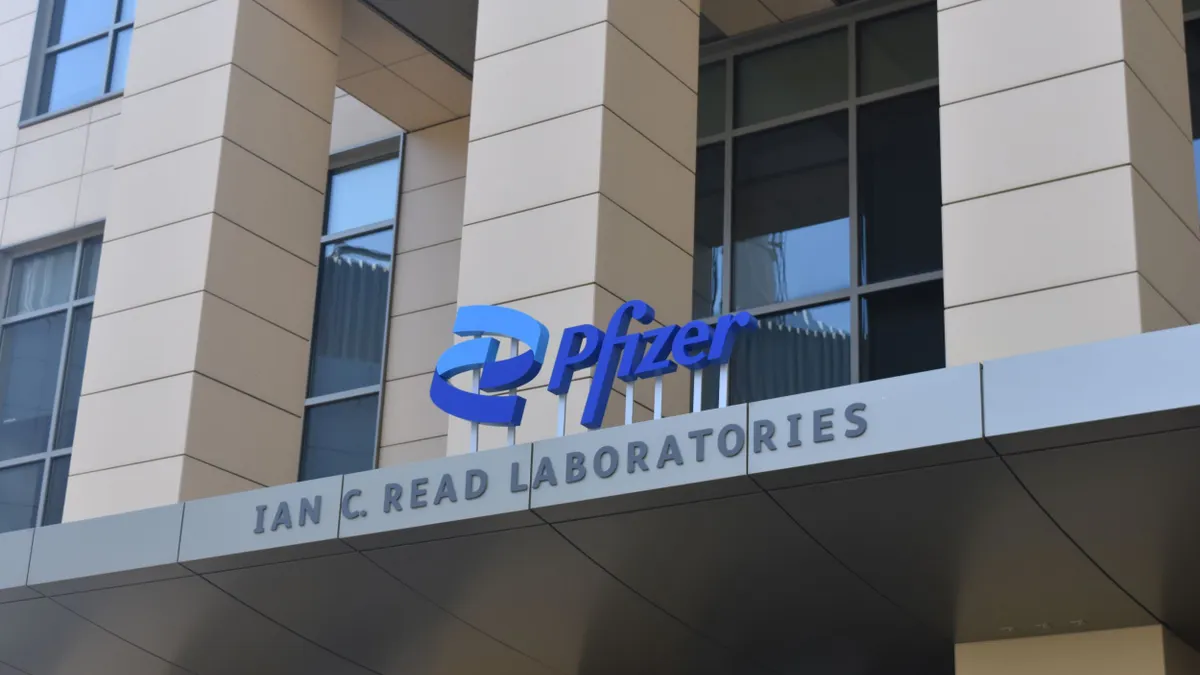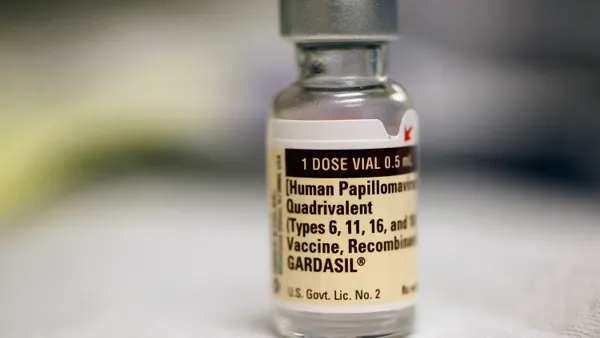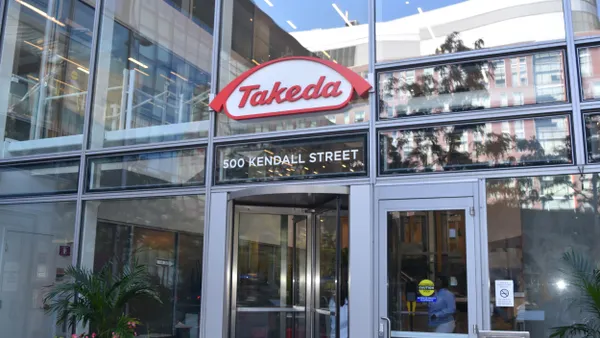Dive Brief:
- Adding Pfizer’s cancer drug Braftovi to standard treatments helped people with a form of colorectal cancer live longer without their disease worsening than those who got the typical care alone in a Phase 3 trial, the company said Monday.
- The result confirms earlier research from the study, called Breakwater, which had shown that trial volunteers receiving Braftovi were significantly more likely to see their tumors shrink or disappear. Those data were used to support an accelerated U.S. clearance for Braftovi in colorectal cancer in December.
- Pfizer has been under pressure from investors to grow revenue amid plummeting sales for its COVID-19 treatments, and cancer drug research is one area it hopes can pick up the slack. Braftovi and the related drug Mektovi, which Pfizer acquired in a 2019 deal for Array BioPharma, generated $437 million in sales through the first nine months of 2024. Pfizer reports full-year earnings on Tuesday.
Dive Insight:
Braftovi is a targeted medicine aimed at a particular mutation, V600E, to the BRAF gene. BRAF mutations occur in about 10% of people with colorectal cancer, and the V600E is the most common among them.
A regimen of Braftovi and Mektovi is already approved in skin and lung cancers. In colorectal tumors, the drug is used in advanced disease with a drug called cetuximab. Those two are prescribed alongside chemotherapy in the frontline setting under the speedy clearance issued in December.
Pfizer acquired Braftovi and Mektovi in an $11.4 billion buyout of Array BioPharma in 2019. At the time, the two drugs were only cleared for melanoma. Pfizer broadened use to other tumors afterward, but they still only generate modest revenue compared to other cancer drugs in the company’s portfolio. The new results revealed on Monday could boost those numbers, though, as Pfizer claimed, without revealing specific details, that Braftovi helped delay tumor progression and extend the lives of colorectal cancer patients.
Since the Array deal, Pfizer has shifted away from targeted small-molecule drugs for cancer and towards biologics. Antibody-drug conjugates, such as those acquired in a $43 billion deal for Seagen, are a focus and part of a plan to have biologics account for 65% of its oncology revenue by 2030 compared to only 6% in 2023.
Patents for two of Pfizer’s biggest sellers in cancer, Xtandi and Ibrance, expire in 2027.














